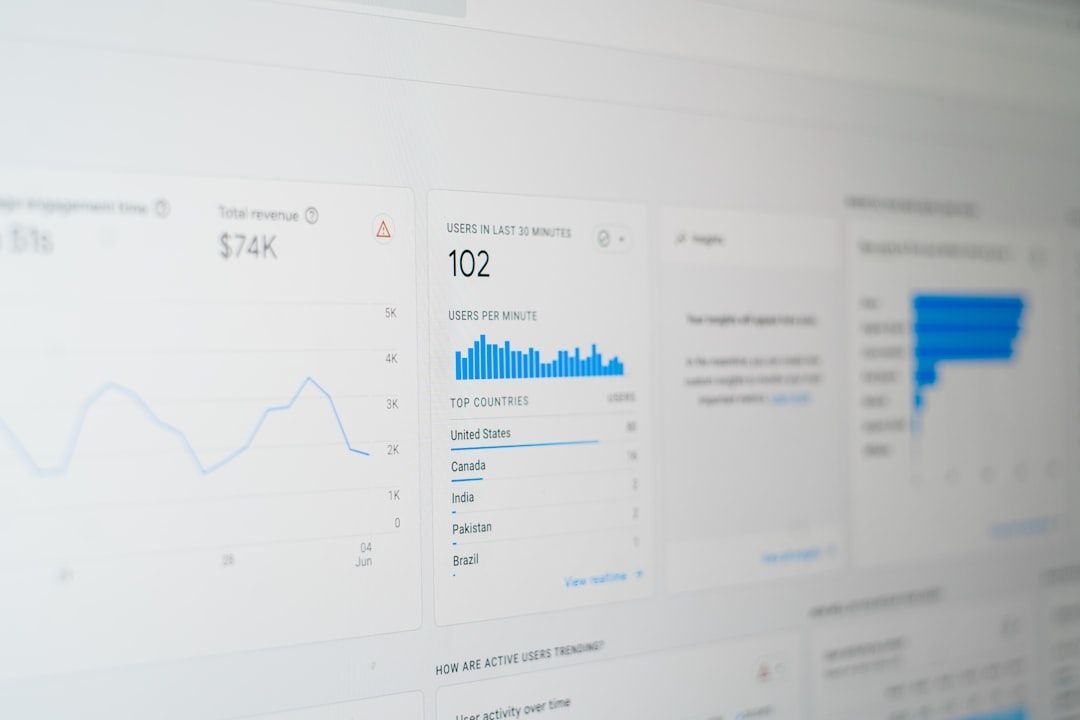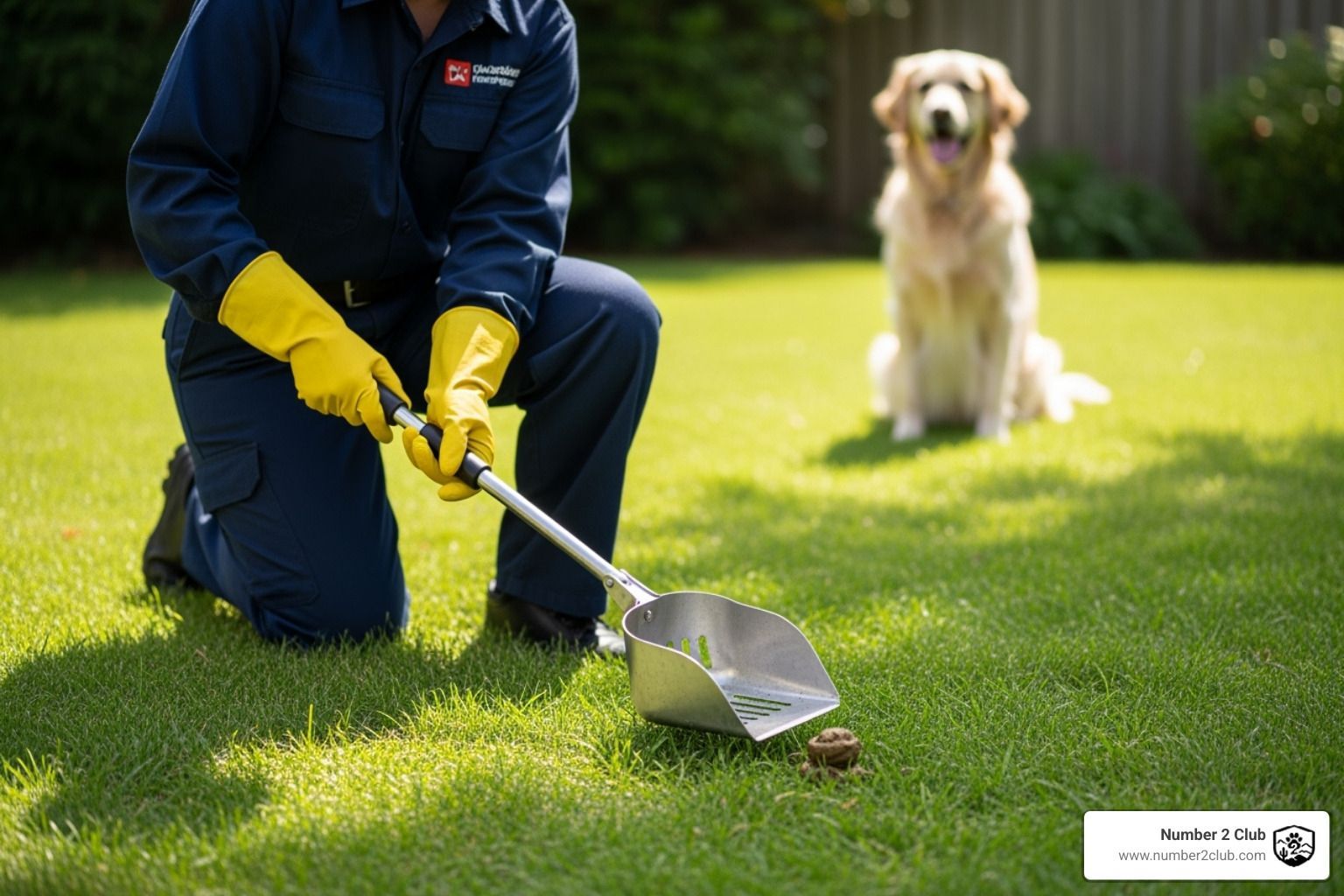Why Websites Are Important for Small Business Owners Who Like Money
Why Small Businesses Can't Afford to Stay Offline
Why websites are important for small business owners becomes crystal clear when you look at the numbers. While 97% of consumers search for products and services online, only 51% of small businesses have websites. That's a massive gap between where customers are looking and where businesses are showing up.
Here's why websites are essential for small business success:
- Credibility- 75% of consumers judge a company's credibility based on website design
- Visibility- Google processes 3.8 billion searches daily, but you're invisible without a site
- Sales- Websites work 24/7 as digital storefronts, even when you're sleeping
- Competition- Businesses with websites can compete with larger brands on equal footing
- Growth- Websites expand your reach beyond local customers to global markets
- Efficiency- Automated features like booking and FAQs reduce manual work
The disconnect is costing small business owners real money. When 93% of business purchase decisions start with a search engine search, having no website means missing out on nearly all potential customers who research before they buy.
I'm Joseph Lopez nc, and through my work building digital presence for service businesses like Number 2 Club, I've seen why websites are important for small business growth and customer acquisition.

Why Websites Are Important for Small Business
Picture this: a potential customer is driving through your neighborhood, looking for the exact service you provide. They spot your physical storefront and immediately form an impression based on what they see. Is the signage professional? Does the building look well-maintained?
Now imagine that same scenario playing out online, where why websites are important for small business becomes crystal clear. Your website is your digital storefront, and just like that physical building, it creates an instant impression that can make or break a potential sale.

The stakes are actually higher online than in person. While someone might give your physical store a second glance if the first impression isn't perfect, website visitors make their judgment calls in milliseconds. The research backs up what we see every day: 75% of people judge your entire company's credibility based purely on your website design.
This isn't just about vanity or keeping up with trends. We've worked with local businesses that went from struggling to find customers to being booked solid, simply by creating a professional online presence. One service company saw their leads triple within six months—not because they changed their services, but because they finally looked credible online.
Establishing Credibility & Professionalism
Here's something that might surprise you: when people can't find your business online, they don't just assume you're old-fashioned. They start wondering if you're actually legitimate.
Having no website feels suspicious to potential customers. They're used to being able to research everything online before making a decision. When they search for your business and find nothing, or just a basic social media page, it raises red flags.
Your website serves as your business credentials, available 24/7. When you have a custom domain name like yourcompany.com instead of relying on free email addresses, you instantly signal that you're serious about your business. Sending emails from sarah@yourcompany.com carries so much more weight than sarah123@gmail.com.
Social proof becomes incredibly powerful when it lives on your website. Customer testimonials, reviews, and case studies don't get lost in social media feeds—they're right there when visitors are deciding whether to trust you.
Making a Strong First Impression with Your Site
Understanding why websites are important for small business success means recognizing that your site might be your only shot at making a good impression. And with more than half of all web browsing happening on phones, that impression needs to work perfectly on a tiny screen.
Mobile-friendly design isn't optional anymore —it's essential. When someone finds your business while they're out and about, your website needs to look great and work smoothly on their phone. A site that's hard to steer on mobile sends potential customers straight to your competitors.
Speed matters more than you might think. If your website takes longer than three seconds to load, you're losing customers before they even see what you offer. People are impatient online, and slow websites feel outdated and unprofessional.
Modern, clean design tells visitors that your business is current and reliable. Often, the most effective websites are the simplest ones—clear navigation, professional photos, and easy-to-find contact information.
SSL security(that little lock icon in your browser) has become absolutely essential. Modern browsers actually warn people when they visit unsecured websites, which immediately damages trust. Plus, Google prioritizes secure sites in search results.
Reach, Visibility, and Growth
Picture this: while you're having your morning coffee, potential customers are already searching for exactly what your business offers. Google processes over 3.8 billion searches every single day —that's 40,000 searches happening every second. Many of those searches are from people desperately looking for businesses just like yours.
But here's the thing that really drives home why websites are important for small business owners: without a website that search engines can find and understand, you're completely invisible to this massive river of potential customers flowing past your business every day.
Local SEO has become a game-changer for small businesses. When someone in your area searches for "plumber near me" or "best pizza in Litchfield Park," Google prioritizes showing local businesses first. But you can only appear in these incredibly valuable local search results if you have a website that Google can find, crawl, and index.

The most beautiful part about having a professional website is that it becomes your most hardworking employee —one who never calls in sick, never takes vacation, and works enthusiastically at 2 AM on a Sunday. While you're sleeping peacefully, your website is busy attracting new customers, answering their questions through your FAQ section, and even processing orders or appointment bookings.
We've watched businesses in communities like Goodyear, Verrado, and Buckeye completely transform their growth trajectory through strategic website development. One of our clients went from serving only customers within a five-mile radius to shipping their handmade products to customers nationwide.
Search Engine Visibility & SEO
Understanding why websites are important for small business visibility requires grasping how search engines actually work behind the scenes. Every single time someone types a question or need into Google, complex algorithms decide which businesses deserve to be shown. Your website is essentially your application to be included in those search results.
Content marketing through your website opens doors to customers you might never have imagined reaching. Think about a local plumber who creates a helpful blog post about "how to unclog a stubborn drain." That article might attract homeowners who initially planned to fix the problem themselves but realize they need professional help. That's the magic of content-driven customer attraction.
Your Google My Business listing becomes exponentially more powerful when it's connected to a well-designed website. Google uses your website content as context clues to better understand exactly what your business does and when to show it to searchers.
For practical, actionable guidance on creating content that actually drives traffic to your business, our Tips for Writing Great Posts That Increase Your Site Traffic provides strategies that have helped countless small businesses improve their search visibility and attract more qualified customers.
Smart keyword optimization means naturally weaving in the exact terms your ideal customers use when they're actively searching for your services. If you're a landscaper serving Arizona communities, you want to be the business that appears when people search for "landscaping services Phoenix" or "yard maintenance Scottsdale."
Recent research on search visibility reveals something fascinating: businesses that regularly update their websites with fresh, valuable content consistently outrank competitors with static, rarely-updated sites.
Scaling Beyond Your Zip Code
Your website essentially removes the geographic handcuffs that have traditionally limited small businesses to their immediate neighborhoods. A specialty bakery in Litchfield Park can now sell their famous custom cakes to customers in New York through online ordering and shipping.
E-commerce capabilities transform your website into a revenue-generating machine that never sleeps. Even service-based businesses benefit enormously from features like online booking systems that allow customers to schedule appointments during evenings and weekends when your office is closed.
The analytics and insights your website provides are like having a crystal ball for your business decisions. You can see exactly which services generate the most interest from visitors, which pages keep people engaged the longest, and where your website traffic is coming from geographically.
Perhaps most exciting is the scalability factor for ambitious small business owners. Your website can simultaneously handle hundreds or even thousands of visitors without breaking a sweat—something completely impossible for businesses relying solely on phone calls and walk-in traffic.
Operational Efficiency & Customer Experience
Running a small business means wearing many hats, but your website can take several of those hats off your head. Think about all the time you spend answering the same questions over and over— why websites are important for small business efficiency becomes obvious when you realize how much of that repetitive work your site can handle automatically.
A well-designed FAQ section works like having a knowledgeable employee available 24/7. We've worked with businesses that cut their customer service calls in half simply by anticipating common questions and answering them clearly on their websites.
Online forms transform how you capture leads and gather customer information. Instead of playing phone tag trying to understand what a potential client needs, they can submit detailed project information when it's convenient for them. You wake up to qualified leads with all the details you need to provide accurate quotes.
The magic happens when these systems work together. A potential customer finds your business through search, reads your FAQ to understand your process, fills out a contact form with their project details, and books an initial consultation—all without you lifting a finger.
Here's how manual processes compare to web-based automation:
| Task | Manual Process | Web-Based Process |
|---|---|---|
| Lead Capture | Phone calls during business hours | 24/7 contact forms |
| Appointment Scheduling | Back-and-forth phone calls | Online booking system |
| Payment Collection | Cash/check at service | Online payment processing |
| Customer Follow-up | Manual calls/emails | Automated email sequences |
| Information Sharing | Printed brochures | Digital downloads |
Streamlining Operations
Modern websites connect with your existing business tools to create workflows that practically run themselves. When someone books an appointment through your website, it can automatically appear in your calendar, send confirmation emails, and even process deposit payments.
Payment processing through your website eliminates those awkward moments of collecting money after completing work. Customers can pay invoices online, set up recurring payments for ongoing services, or make deposits to secure future appointments. This improves your cash flow and makes the entire experience more professional.
If you're ready to build these efficient systems but worry about the technical complexity, our guide to the Easiest WordPress Page Builder shows how to create professional websites without needing coding skills.
Inventory management becomes effortless when your website connects to your business systems. Products automatically show as out of stock when inventory runs low, preventing overselling and customer disappointment.
Building Brand & Community Online
Your website becomes much more than a digital brochure—it's where relationships with customers begin and deepen. A regularly updated blog lets you share your expertise, tell stories about interesting projects, and provide valuable tips even when people aren't ready to hire you yet.
Building an email list through your website creates a direct line of communication with people interested in your services. Unlike social media where algorithms decide who sees your posts, email lets you reach your audience directly. Our detailed guide on how to Keep in Touch with Site Visitors and Boost Loyalty shows exactly how to build these valuable relationships.
The storytelling aspect of your website helps customers connect with you personally. People prefer doing business with companies they know and trust. Your website gives you space to share why you started your business, what drives you to do great work, and the values that guide your decisions.
The Risk of No Site—or a Bad One
Having no website in 2024 is like showing up to a business meeting in pajamas—it immediately signals that you're not serious about your business. When why websites are important for small business owners becomes a survival question rather than a growth question, you know the digital landscape has shifted permanently.
The harsh reality is that 80% of consumers form negative opinions about companies without websites. They don't just move on to competitors—they actively question whether your business is legitimate, current, or professional enough to handle their needs.
But here's the twist: having a terrible website can actually hurt you more than having no website at all. At least with no website, people might give you the benefit of the doubt. A broken, outdated, or unprofessional website actively damages your reputation every time someone visits it.
I've seen businesses lose thousands of dollars in potential revenue because their website looked like it was built in 2005. One client came to us after finding that potential customers were visiting their site, then immediately calling competitors instead.
Security vulnerabilities in neglected websites create even bigger problems. Data breaches, malware infections, and hacking attempts can cost far more than building a proper website from scratch. Plus, they can destroy the trust you've spent years building with customers.
The recent SBA disaster-assistance insights reveal something fascinating: businesses with strong online presences recover faster from unexpected disruptions. When physical locations become inaccessible, companies with robust websites can continue serving customers remotely.
Social Media Isn't Enough
I hear this excuse constantly: "But I have a Facebook page!" While social media platforms are valuable marketing tools, they're like renting space in someone else's building—you're always at the mercy of the landlord's rules.
Platform algorithms change constantly, often hiding your content from people who actually want to see it. What works brilliantly on Instagram today might flop tomorrow when they update their algorithm. I've watched businesses lose 70% of their organic reach overnight due to algorithm changes they had no control over.
The bigger risk is platform dependency. You don't own your social media presence—Facebook, Instagram, or TikTok do. They can suspend your account, change their terms of service, or even shut down entirely. Remember when businesses built their entire presence on platforms that no longer exist?
Data ownership is another crucial factor that most small business owners overlook. When customers interact with your website, you own that valuable information and can use it to improve your marketing. On social media platforms, the platform owns the customer data and severely limits how you can use it.
For comprehensive strategies that go beyond social media dependence, our Blog regularly shares insights on building a diversified online presence that protects your business from platform changes.
Red Flags of a Poor Website
Slow loading times are the fastest way to hemorrhage potential customers. If your site takes more than three seconds to load, you'll lose about 40% of visitors before they even see your content. Mobile users are even less forgiving—many will abandon ship after just two seconds of waiting.
Non-responsive design that doesn't work on smartphones is business suicide in 2024. With over half of all web traffic coming from mobile devices, a site that looks terrible on phones effectively excludes half your potential customers.
Cluttered layouts overwhelm visitors and kill conversions. When people can't quickly find what they're looking for, they leave. The best websites guide visitors smoothly toward taking action, whether that's making a purchase, filling out a contact form, or picking up the phone.
Missing SSL certificates trigger scary security warnings that make visitors flee immediately. Modern browsers display prominent red warnings when users visit non-secure sites, causing most people to assume your business is either outdated or potentially dangerous.

The good news? These problems are completely fixable. Every business deserves a website that works as hard as they do, and the investment in getting it right pays dividends for years to come.
Frequently Asked Questions about Small Business Websites
Why do I need a website if I already have social media?
I get this question a lot, and I understand why. Your Facebook page or Instagram account feels like it's doing the job—you're posting updates, customers are commenting, and you're building relationships. But here's the thing: why websites are important for small business owners becomes clear when you realize you're building your house on someone else's land.
Social media platforms can change their rules overnight. Remember when Facebook's algorithm shifted and suddenly your posts weren't reaching your followers anymore? These changes can tank your visibility without warning.
Your website is different. It's your digital real estate that you own completely. You control how it looks, what information visitors see, and how they experience your brand. When someone visits your website, they're not distracted by competitor ads or other people's posts—they're focused entirely on your business.
Think of social media as your networking events and your website as your office. Both are important, but you need a professional space where serious business happens.
How much does a basic small-business website cost?
The honest answer is that website costs are all over the map, but let me break this down in a way that actually helps you make a decision.
A basic DIY website might run you $10-50 per month for hosting and your domain name, plus maybe a few hundred dollars for a professional theme. If you're handy with computers and have time to learn, this can work for very simple sites.
Professional websites typically start around $2,000-5,000 for a solid, custom-designed site that actually converts visitors into customers. More complex sites with e-commerce, booking systems, or custom features can run $5,000-15,000 or more.
But here's what I tell every business owner: don't think about what a website costs—think about what not having one costs. If your website brings in just one new customer per month, it's probably paid for itself. Most of our clients see their websites pay for themselves within the first few months through increased leads and sales.
What elements are essential for an effective site?
After helping dozens of businesses launch successful websites, I've seen what works and what doesn't. The most effective small business websites share several key elements that work together to turn visitors into customers.
Your contact information needs to be crystal clear and easy to find. I'm talking phone number, email, and physical address (if you have one) visible on every page. You'd be surprised how many websites make it hard for customers to actually get in touch.
Professional photos make a huge difference. Blurry smartphone pics or generic stock photos scream "amateur." Invest in good photos of your work, your team, and your location. People buy from businesses they trust, and professional imagery builds that trust instantly.
Customer testimonials and reviews provide the social proof that converts skeptical visitors into paying customers. When people see that others have had great experiences with your business, they're much more likely to take the next step.
Your "About Us" page is often the second-most visited page on small business websites. People want to know who they're doing business with. Tell your story, show your expertise, and let your personality shine through.
Clear calls to action guide visitors toward the next step. Whether that's "Call Now," "Get a Quote," or "Schedule a Consultation," make it obvious what you want people to do next.
On the technical side, your site absolutely must work perfectly on mobile devices, load quickly, and have SSL security. These aren't optional anymore—they're basic requirements for any website that wants to be taken seriously.
Conclusion
The numbers don't lie— why websites are important for small business success becomes undeniable when you see the results. While 97% of your potential customers are searching online, nearly half of your competitors still haven't shown up to the party. That's not just an opportunity—that's a wide-open door to growth.
Think of your website as the hardest-working member of your team. It never calls in sick, never takes vacation, and works around the clock to attract customers while you sleep. Unlike traditional advertising that stops working the moment you stop paying, your website keeps delivering value 24/7, building credibility and generating leads month after month.
The businesses we work with at Number 2 Club consistently tell us the same thing: they wish they'd invested in a professional website sooner. One client put it perfectly: "My website paid for itself with the first three customers it brought in, and it's been pure profit ever since."
Your website levels the playing field in ways that were impossible just a generation ago. A small business in Litchfield Park can compete with national companies for the same customers, purely based on the quality of their online presence and customer experience. Size doesn't matter anymore—smart digital strategy does.
The reality is that your competitors with websites are already capturing customers you could be serving. Every day without a professional online presence is another day of lost opportunities. But here's the encouraging part: it's never too late to start, and the businesses that act now often see the biggest improvements.
We've watched small businesses transform their entire trajectory through strategic website development. The local contractor who went from word-of-mouth referrals to a steady stream of online leads. The service provider who expanded from serving one zip code to helping customers across multiple states. These aren't lucky breaks—they're the predictable results of understanding why websites are important for small business growth.
The investment in a professional website isn't just about today's sales—it's about building a foundation for tomorrow's growth. Your website becomes more valuable over time as it builds search engine authority, accumulates customer reviews, and develops a track record of converting visitors into customers.
Ready to stop watching potential customers choose competitors they found online instead of you? Contact our team to get your revenue-ready website today and find how the right digital presence can transform your business growth.
The question isn't whether you can afford to build a website—it's whether you can afford to keep missing out on the customers who are already looking for what you offer.













